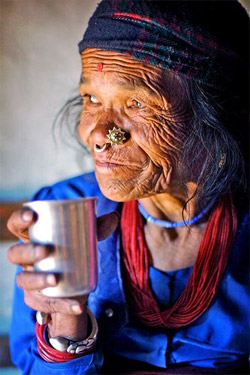
Chamomile is one of the oldest, most-widely used and well-documented medicinal plants in the world and has been recommended for a variety of healing applications. It is currently widely used as an herbal remedy in Mexico and among Mexican-Americans.
The study examined a seven-year period during which researchers tracked the effects of chamomile and the cause of death in older Mexican- Americans. The researchers analyzed data from 1,677 women and men from the Hispanic Established Populations for Epidemiologic Study of the Elderly, a population-based study of Mexican-Americans aged 65 and older from five Southwestern states, including Texas. Fourteen percent of the people in the study drank chamomile tea.
The data showed that consuming chamomile was associated with a 29 percent decreased risk of death from all causes among women compared with nonusers, even after adjusting for demographics, health conditions and health behaviors. This effect was not present in men.
“The reason for a difference in our reported findings between Hispanic women and men is not clear, although women were shown to be more frequent users of chamomile than men,” said Bret Howrey, assistant professor in the UTMB department of family medicine. “This difference may be due to traditional gender roles whereby women manage the day-to-day activities of the household, including family health, and may also reflect greater reliance on folk remedies such as herbs.”
It is unclear how chamomile use is associated with decreased mortality. Recent studies of chamomile have shown potential benefits in treating hyperglycemia, upset stomach, diabetic complications and anxiety disorder. Chamomile has also been touted for its cholesterol-lowering, antioxidant, antimicrobial, anti-inflammatory and anti-platelet effects. The exact pathway for the reduction in mortality represents an important area for future research.The study has been done by University of Texas Medical Branch at Galveston.